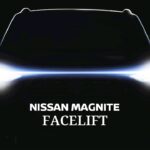Washington, DC may impose a strict “oil tax” that imposes fines based on the weight of cars.
The offer The Mazda Miata sounds like a dream come true for engineers, but it will lead to an increase in vehicle registration fees due to the weight of the cargo offered by the manufacturers.
Cars weighing 3,499 pounds (1,587 kg) or less cost $ 72, while models weighing 3,500-4,999 pounds (1,588-2,267 kg) cost $ 175. It goes up to $ 250 for models weighing 5,000-5,999 pounds (1,589-2,721 kg) and up to $ 500 for cars weighing 6,000 pounds (2,722 kg) or more. This means that the registration fee for the heaviest models will increase to $ 345 annually.
Also read: The GMC Hummer EV weighs 9,063 pounds and is heavier than its only battery, the Mazda Miata.

Interestingly, the higher charges also apply to electric vehicles that rely on heavy lithium-ion batteries. It sounds heavy, but it will be a bit of a relief to the owners, as the registration fee will be $ 36 for the first two years until they charge 1000 pounds (454 kg) depending on their weight to help recharge the battery. However, it should be noted that the battery pack in the GMC Hummer EV weighs 2,923 pounds (1,326 kg), so the weight credit is too hard.
Passenger cars are not the only target vehicles, as the proposal also penalizes those who own heavy commercial vehicles, tractors or rented passenger vehicles. They start at $ 125 and go up to $ 700 for trucks weighing 10,000 pounds (4,536 kg) or more. However, there is an additional “tax” because the city receives an additional $ 50 for every 1,000 pounds (454 kg) that exceeds 10,000 pounds (4,536 kg).

Council member Mary Czech said she was not ashamed to target heavy trucks and SUVs. Bloomberg, “You can’t ban the sale of these things, but you can force them to pay for it in their own way.” He also said it was done for safety reasons because “when cars and pedestrians or cyclists come in contact, we know that the heavier the car, the worse the accident.”
Regardless of how you view the proposal, it may not hurt that the move will bring the city about $ 40 million in revenue over the next five years. With this in mind, it is not surprising that the proposal was announced “through the city council of DC, first unanimously approved by the Committee on Transport and the Environment, and then as part of the city’s overall budget package approved this week.”







